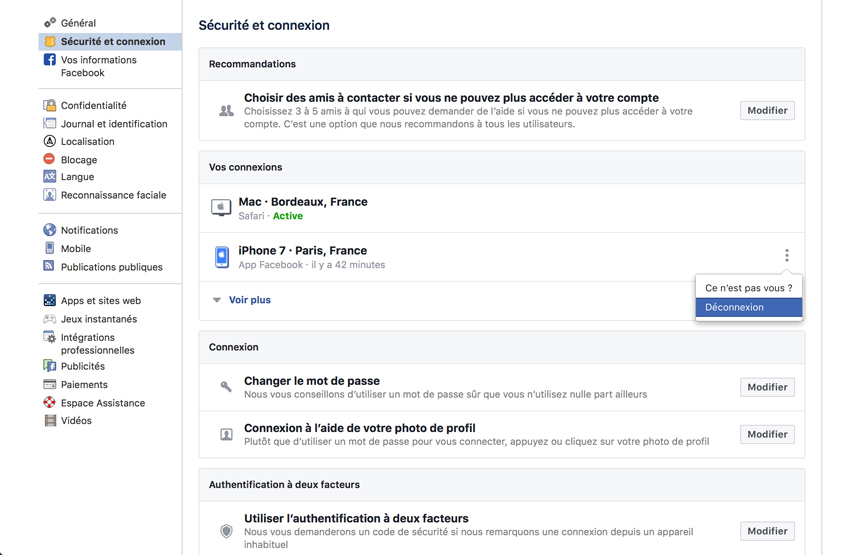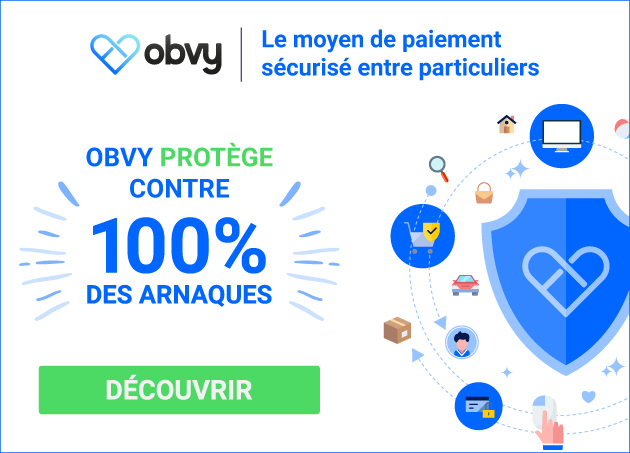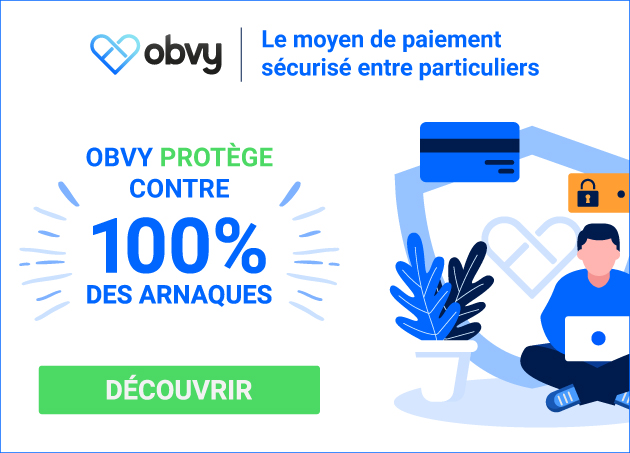Facebook Scams: Avoiding Them and Securing Transactions Between Private Individuals on Sales Groups
The king of social networks is also a real classified ads site for individuals! And as with Leboncoin, scams are legion. Buying and selling groups between individuals inevitably attract scammers who try to track down bargain hunters to swindle. Fortunately, it is possible to avoid them.
Between groups (and we invite you to join our Obvy classified ad groups on Facebook) and Marketplace, the social network is carving out an increasingly large share of the private-to-private buying and selling segment. Taking advantage of all the network's features (messaging, profiles, etc.), this functionality has been a resounding success. But thousands, if not millions, of scams are also posted there every day, often by fake profiles or those of users who have been hacked. Here are a few tips to help you make the most of this fantastic exchange space while staying away from the scammers who have a field day.
Register now on Obvy and get £5 free with the code STOPARNAQUE
Don't trust strangers and take safety precautions
The main difference between Facebook and classified ad sites such as Leboncoin is that here users have a profile. But beware, it's very easy for scammers to create fake accounts. Worse still, some have genuine user accounts whose identifiers have been hacked, which they use to try and scam other users. To avoid this kind of problem, as well as having your account hacked, we advise you never to give out your login details (some crooks may find excuses to ask you for them), and to renew your password as often as possible. You can also access the list of devices connected to your Facebook account from your settings.

If you detect a connected device that is unknown to you, you can disconnect it remotely. It is then very important to change your password immediately.
Once your log-in details are secure and you are sure that no-one else has access to your account, you should also avoid being taken in by scammers in the private sales and buying areas.
Identifying scam publications
On Facebook, there is no foolproof way of recognising a fraudulent advert at first glance. But there are certain clues that should alert you. Here are the most common cases of ads that turn out to be scams:
Seemingly legitimate advertisements
They are standard, apparently posted by honest people who simply want to sell an item. However, the majority simply cannot be commented on, forcing interested parties to send a private message to the scammer, while preventing those who have identified the scam from being able to warn other members!

The advert seems perfectly acceptable, but when the potential buyer starts talking to the seller, the latter starts giving a whole host of reasons why they should send a third party. It's a scam! First of all, just look at the price of the car in question: it's far too low given the condition and nature of the vehicle. Secondly, comments are disabled. A comment on these images posted by someone who smelled the scam reads as follows:

So where does the scam lie? There are several possible cases:
- The swindler demands payment in cash and ambushes the seller with the money on him to rob him.
- The scammer will ask for payment by PCS (Mastercard, Transcash, Toneo, Neosurf, etc.) and will ask for it before the meeting to make sure that you are not trying to scam him (which is the last straw), and then when the buyer turns up at the meeting place, there will be no-one there. As we explain in this dedicated article, payment by PCS is absolutely not recommended!
- The scammer will ask you to pay by PayPal and redirect you to a page claiming that the item is blocked for the duration of the payment. This too is a scam! There are many scams involving PayPal between individuals, so please read our article on the subject.
Register now on Obvy and get £5 free with the code STOPARNAQUE
False donations
Easier to detect, these scams take the form of advertisements claiming to offer you property or an animal in exchange for good maintenance or care.

The scammer will then say that there are costs to be paid. These may be of various kinds: delivery or transport costs, various taxes, etc. Nobody gives away pure-bred animals, valuables or vehicles. It's sad, but there's no need to dream: all these ads are actually scams. All you have to do is carry out a reverse search on the photos used on Google to see that they have been recovered from the internet. Don't let yourself be blinded by your desires, but always keep your distance, or it can be very costly.
False advertisements for services (cleaning, beauty care, gardening, etc.)
Much harder to detect but also much more traumatic, these increasingly common scams offer services between private individuals at knock-down prices. The scammers' aim? To rip you off. They can do this in several ways:
- By asking you to pay in advance, which you should never do.
- By breaking into your home to steal your valuables and means of payment (bank card, cheque book, etc.), if not your identity papers.
This second case can lead to catastrophic situations (identity theft, misappropriation of your means of payment, etc.).
To ensure the security of your goods and services transactions, always use Obvy
Obvy is the only payment method capable of securing all your transactions between private individuals, whether selling or buying an object or service. Our payment experts have created a payment system capable of protecting you from all the scams that are rife on classified ad platforms, not only in terms of payment, but also by verifying the real identity of members.
Obvy has created a payment system specially designed to secure your transactions on Facebook. You'll be able to create secure payment links to share on the social network, so you can sell securely and avoid scams. Create your payment links now - it's free!


